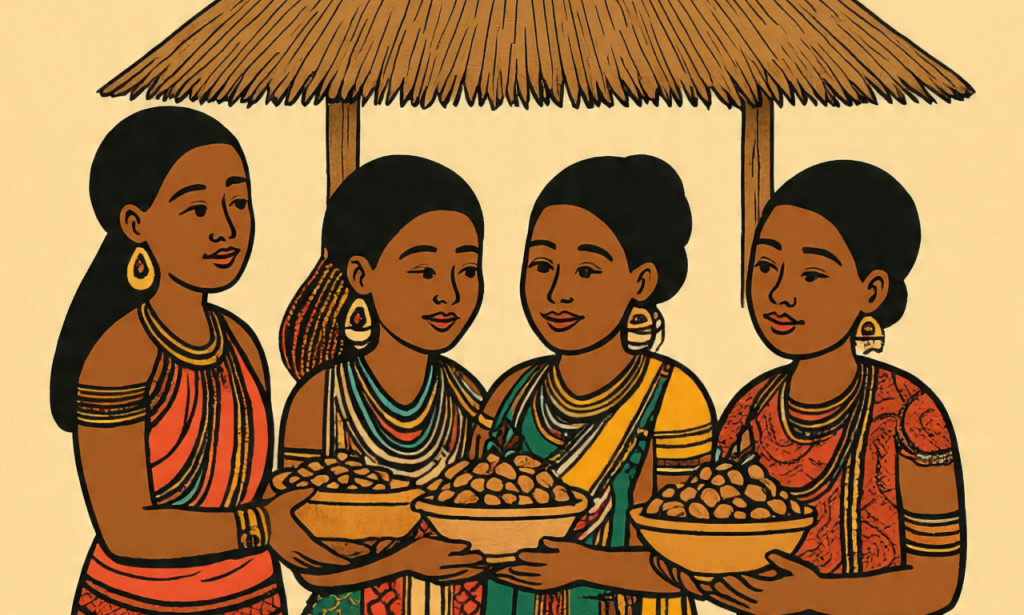In the cultural heritage of the Edo Kingdom, the kolanut holds a sacred place. It is not only a symbol of hospitality but also of peace, respect, and unity. Among the many royal figures who influenced Edo traditions, Princess Adesuwa stands out for her remarkable role in shaping the way kolanut is served and its significance in the lives of Edo women.
The Sacred Meaning of Kolanut in Edo Culture
Kolanut is central to traditional gatherings in the Benin Empire. Whether during weddings, festivals, or palace meetings, the presentation of kolanut symbolizes goodwill and acceptance. It represents the bond between host and guest, carrying prayers of peace, prosperity, and long life.
Princess Adesuwa’s Influence on Kolanut Tradition
Princess Adesuwa elevated the serving of kolanut into a refined cultural practice that continues to this day. Her contributions include:
1. Recognition of Women in Kolanut Rituals
Before her time, the handling and prayers over kolanut were largely seen as a male responsibility. Princess Adesuwa introduced the idea that women, too, should play a role in this sacred ritual, especially in family and palace settings. This elevated the cultural status of Edo women in traditional practices.
2. Establishing Etiquette in Serving
She taught that kolanut must be served with dignity and respect. Women presenting kolanut were instructed to use both hands, accompanied by words of blessing. This etiquette became a standard and is still observed in Edo households and ceremonies today.
3. Kolanut as a Reflection of Womanhood
For Princess Adesuwa, the act of serving kolanut symbolized a woman’s role as a bringer of peace and harmony. She linked hospitality with virtue, teaching Edo women that their respectfulness and grace in welcoming guests reflected their strength and character.
4. Cultural Continuity
By making women custodians of the kolanut tradition, Princess Adesuwa ensured that the practice would not only survive but also carry forward through generations. Today, Edo women remain proud keepers of this heritage, presenting kolanut at weddings, meetings, and community gatherings.
Lasting Legacy
Princess Adesuwa’s reforms made kolanut-serving more than just a ritual; they turned it into an expression of dignity, respect, and cultural pride. Her influence still guides Edo women, reminding them of their role as custodians of peace and tradition.
Conclusion
Princess Adesuwa’s contribution to the tradition of serving kolanut in Edo Kingdom is a clear example of how cultural practices evolve under visionary leadership. By giving women a recognized role in this sacred ritual, she not only strengthened Edo traditions but also redefined the place of women in cultural and spiritual life. Her legacy lives on, each time a kolanut is presented with grace, prayers, and respect in Edo gatherings.


Thank you for this useful information
You must be logged in to post a comment.